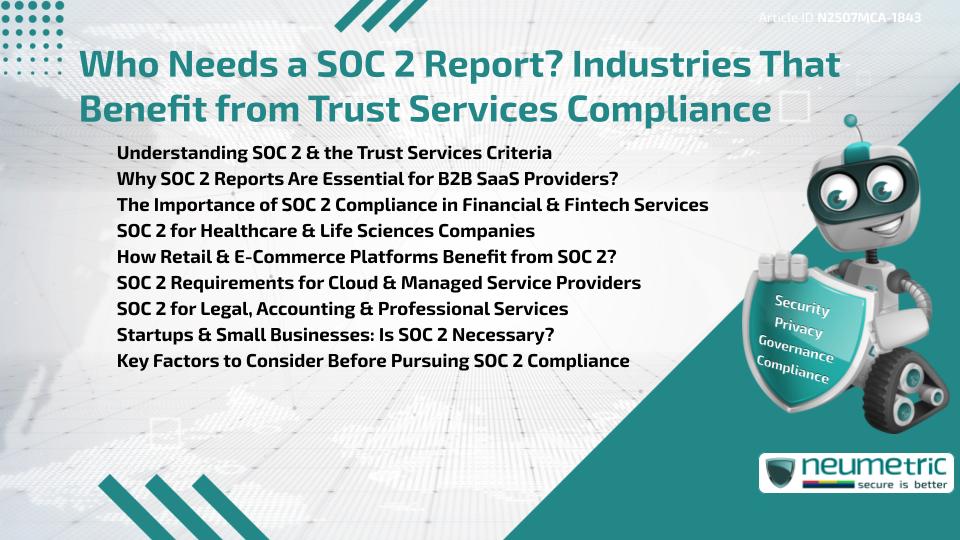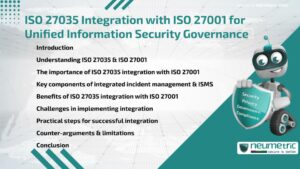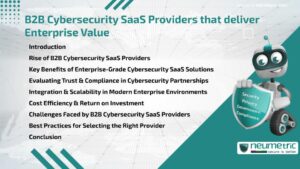Table of Contents
ToggleIntroduction
In a digital-first world, data security & operational integrity are no longer optional. Customers, regulators & business partners expect proof that your systems are secure & reliable. This is where SOC 2 comes in. Developed by the American Institute of Certified Public Accountants [AICPA], a SOC 2 report evaluates how well an organisation safeguards customer data based on five key Trust Services Criteria.
But who needs a SOC 2 report? While it’s not legally required, it’s quickly becoming an industry-standard badge of trust. In this article, we explore which industries gain the most from SOC 2 compliance & why it matters.
Understanding SOC 2 & the Trust Services Criteria
SOC 2 refers to System & Organisation Controls Type 2. It’s a third-party audit framework based on five Trust Services Criteria: Security, Availability, Processing Integrity, Confidentiality & Privacy.
These criteria help organisations assess whether their systems are designed & operated to meet specific controls. SOC 2 reports come in two forms—Type I assesses controls at a point in time while Type II covers control performance over a period.
So, who needs a SOC 2 report? Any company that handles sensitive data on behalf of clients should strongly consider it.
Why SOC 2 Reports Are Essential for B2B SaaS Providers?
Software-as-a-Service [SaaS] companies are some of the most common adopters of SOC 2. These platforms store user data, process transactions & integrate with multiple third-party services. A SOC 2 report reassures clients that their data is protected.
For SaaS providers serving regulated industries or handling personally identifiable information [PII], who needs a SOC 2 report is no longer a question—it’s a requirement for doing business.
Check out the Cloud Security Alliance’s SaaS guidance
The Importance of SOC 2 Compliance in Financial & Fintech Services
Banks, credit unions & fintech startups must meet strict regulatory requirements. Even when SOC 2 is not legally mandated, financial institutions often request it from vendors & partners.
SOC 2 helps demonstrate internal controls around transaction integrity, uptime & data privacy—three essential pillars in financial services. So, who needs a SOC 2 report in fintech? Nearly everyone dealing with payments, lending or asset management.
See guidance from the Financial Industry Regulatory Authority
SOC 2 for Healthcare & Life Sciences Companies
Companies in the healthcare industry are governed by regulations such as HIPAA. However, many HealthTech & MedTech vendors also choose to obtain SOC 2 reports to show broader operational reliability & data security practices.
It’s common for digital health platforms, patient data managers & clinical trial platforms to be asked for SOC 2 compliance by their partners. So again, who needs a SOC 2 report? Anyone looking to serve hospitals, clinics or health insurers.
How Retail & E-Commerce Platforms Benefit from SOC 2?
Retailers increasingly rely on cloud-based platforms & third-party service providers for operations, analytics & payment processing. This reliance comes with cyber risks, especially with large volumes of customer data at stake.
For platforms that support e-commerce infrastructure, SOC 2 offers a way to showcase the security & availability of their services. Who needs a SOC 2 report here? Any provider handling online transactions or storing customer behaviour data.
Explore data security best practices from NIST
SOC 2 Requirements for Cloud & Managed Service Providers
Managed service providers [MSPs], cloud infrastructure platforms & cybersecurity firms handle critical operations on behalf of clients. These clients need proof that their service provider is secure & resilient.
For MSPs & IaaS vendors, who needs a SOC 2 report is obvious—anyone providing backend services or access to customer environments.
SOC 2 for Legal, Accounting & Professional Services
Law firms, accounting agencies & consulting groups may not see themselves as data processors—but they handle sensitive legal, financial & strategic data. Increasingly, clients are requesting SOC 2 reports to ensure secure handling of such information.
For these firms, SOC 2 serves as both a risk management tool & a competitive differentiator. So who needs a SOC 2 report in professional services? Any firm working with confidential client records.
Startups & Small Businesses: Is SOC 2 Necessary?
While smaller firms may not face immediate pressure, those targeting enterprise clients will inevitably need to show compliance. SOC 2 can be a growth enabler, helping young companies win larger deals.
Who needs a SOC 2 report among startups? Those aiming for scalability, client trust & investor confidence.
Key Factors to Consider Before Pursuing SOC 2 Compliance
SOC 2 is not one-size-fits-all. Companies should evaluate:
- Whether they handle client data
- How often customers request proof of compliance
- Industry expectations & deal-breakers
If your business touches sensitive information or operates in a regulated space, then who needs a SOC 2 report includes you.
Takeaways
- SOC 2 reports validate an organisation’s commitment to data security & operational excellence.
- They are crucial for B2B SaaS, financial services, healthcare, cloud & professional services.
- While not legally mandatory, they are often a de facto requirement for winning & keeping clients.
- Startups & SMEs benefit from SOC 2 by boosting credibility in the market.
FAQ
What is the main purpose of a SOC 2 report?
A SOC 2 report evaluates how an organisation manages customer data based on Trust Services Criteria like security & privacy.
What is the main purpose of a SOC 2 report?
A SOC 2 report evaluates how an organisation manages customer data based on Trust Services Criteria like security & privacy.
Who typically asks for a SOC 2 report?
Enterprise clients, auditors & business partners often require a SOC 2 report before engaging in data-sharing relationships.
Does every company need a SOC 2 report?
Not every company, but who needs a SOC 2 report includes those handling sensitive customer data or operating in regulated industries.
Can SOC 2 reports help in marketing & sales?
Yes, SOC 2 builds customer trust, which can be leveraged in sales pitches, proposal responses & partnership discussions.
Is SOC 2 required by law?
SOC 2 is not a legal requirement but it is often required contractually, especially in finance, healthcare & enterprise deals.
How long does it take to get SOC 2 certified?
The process typically takes several months, depending on the scope, current security posture & whether it’s Type I or Type II.
How much does it cost to get a SOC 2 report?
Costs vary widely but can range from a few thousand to tens of thousands of dollars depending on the auditor & scope.
Can a company self-certify SOC 2 compliance?
No. Only a licensed CPA firm can issue a SOC 2 report after conducting an independent audit.
Need help?
Neumetric provides organisations the necessary help to achieve their Cybersecurity, Compliance, Governance, Privacy, Certifications & Pentesting goals.
Organisations & Businesses, specifically those which provide SaaS & AI Solutions, usually need a Cybersecurity Partner for meeting & maintaining the ongoing Security & Privacy needs & requirements of their Clients & Customers.
SOC 2, ISO 27001, ISO 42001, NIST, HIPAA, HECVAT, EU GDPR are some of the Frameworks that are served by Fusion – a centralised, automated, AI-enabled SaaS Solution created & managed by Neumetric.
Reach out to us!





